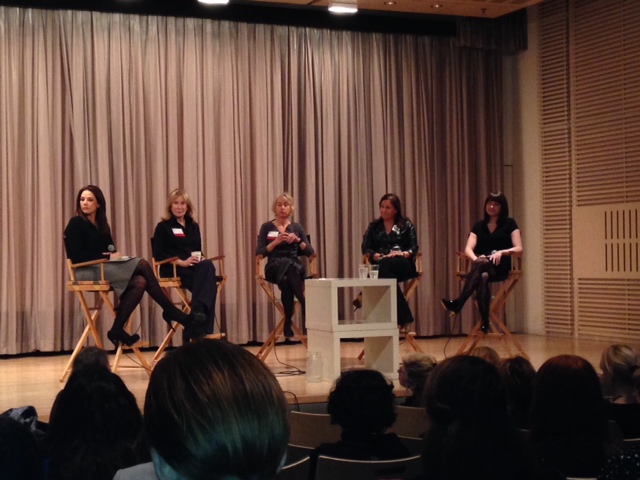The Importance of Mentoring
-
January 21, 2014
- Posted by: Chaloner

This week we’d like to welcome Samantha Beach, our guest blogger and recent attendee at the most recent New York Women in Communications event.

This week I had the privilege of attending a New York Women in Communications (NYWICI) Coffee & Conversations Panel on “The Fastest Way to the Top.” Erica Hill, co-anchor of TODAY’s Weekend Editions moderated the conversation between an impressive group of women including Ellen Archer, President at Hyperion Books/Head of East Coast Development, ABC Entertainment; Nancy Evans, a Media Consultant and Co-Founder of iVillage; Stacy Martinet, Chief Marketing Officer at Mashable; and Denise Warren, Executive Vice President in The New York Times Digital Products and Services Group.
Each panelist had distinctly different experiences and perspectives to share regarding mentorship, however all of the women advocated passionately for seeking out and maintaining a mentoring relationship.
Here are some of the best nuggets of wisdom I took away:
1. Passion and curiosity are more important than intelligence. It isn’t necessary to impress a mentor through vast industry knowledge or groundbreaking ideas. A demonstrated desire to learn and grow will mean the most to someone whose career you’d like to emulate.
2. As Stacy pointed out, you can’t exactly walk up to someone and ask, “Will you be my mentor?” Rather, it is best to be noticed through hard work. In the early career stages, staying late, being diligent in all tasks- large and small- and thinking creatively and expansively about the projects at hand will draw the attention of possible mentors.
3. It is clear the mentee has much to gain from her proximity to a woman who is a bit farther along than she, but what is in it for the mentor? This question was posed to the panel that agreed there is a reverse mentoring that often occurs, as the mentee brings energy and creativity to the workplace. They also bring a useful naïveté, having not yet hardened to the way things have always been done, and the mentor might be encouraged to re-imagine certain operating methods or strategies. Ellen pointed out that perhaps, most importantly, mentorship is a way of keeping women in the workforce as we sharpen one another and open doors to bigger opportunities.
It is almost ironic that mentorship became the crux of a panel titled “The Fastest Way to the Top.” Much as we would like it to be, mentorship isn’t fast. It requires a sacrifice of time, one of our most valuable resources. To succeed, a mentoring relationship also demands intentionality, courage, and vulnerability. Not easy things! However, a panel full of successful women, each juggling incredibly demanding schedules, agreed that the value of a mentoring relationship done well is unparalleled. There is simply no substitute for this exchange of wisdom, encouragement and support. This year, let us seek out mentorship from those whose career and character we admire, and also be mindful of those who might be coming up right behind us.
Chaloner, founded in 1979 as Chaloner Associates, is a national executive search firm that focuses on recruiting mid- to senior-level communications, public relations, marketing and investor relations professionals.
